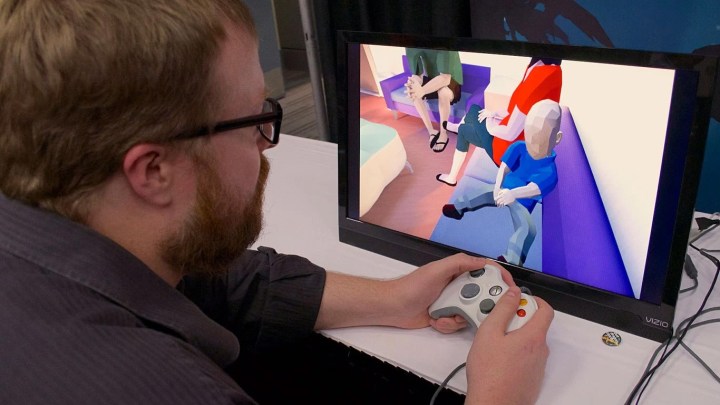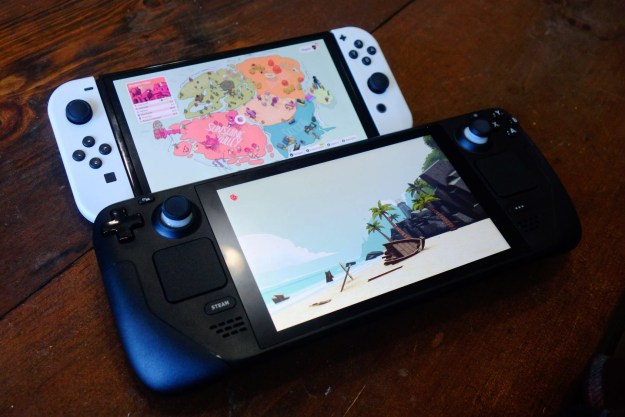
Developed by Joel’s parents, That Dragon, Cancer was largely funded by a timed exclusivity deal with Ouya while the remaining costs were taken care of by a series of loans and donations. The game went on to achieve critical success. A blog post published last Thursday, however, suggested that Numinous Games, the studio behind That Dragon, Cancer that was started by parents Ryan and Amy Green, “has not yet seen a single dollar from sales.”

Now, of course, this doesn’t mean That Dragon, Cancer made no money, but after paying off the expenses required to make the game (such as staff wages, loan repayments, and the music from composer Jon Hillman), Ryan and Amy Green were left without a profit. Reckoning with the company’s losses, Ryan’s blog post introduces the idea that “Let’s Play” videos on sites like YouTube and Twitch are to blame.
“That Dragon, Cancer was created by a studio of eight, and for many of us it was a full-time effort that involved thousands of hours of work,” he declared. “This huge effort required taking on investment, and we decided to pay off all our debt as soon as possible. But we underestimated how many people would be satisfied with only watching the game instead of playing it themselves.”
Green’s resentment toward “Let’s Players” started as a response to an anonymous Twitter follower who complained about a Content ID notification on YouTube, which had been issued as a result of Jon Hillman’s music being featured in their videos. Oblivious in the face of irony, the user complained that it “[sucks] having someone else make revenue off my videos,” to which Green responded, “I agree with you, it does suck to have someone else make revenue off your work.”
Although a handful of developers have publicly taken issue with Let’s Play videos in the past, notably including Fez creator Phil Fish, they’ve largely been written off as nonsense by gamers and Let’s Play creators alike. In Fish’s case, he likened Let’s Play videos to explicit online piracy.

“If you buy a movie, are you then allowed to stream the entirety of it publicly for people to watch for free? No, because that’s illegal,” Fish posted on Twitter back in 2014, shortly before deleting his account. “Systems are in place to prevent that. But buy Fez, put ALL of it on YouTube, turn on ads, make money from it and that’s TOTALLY fine.”
Measures have been taken by the more dominant video game companies, like Nintendo, to address the potential loss in revenues when it comes to video game play-throughs published online, but smaller studios are unable to benefit from these corporate-owned affiliate programs. In turn, this only makes the rich companies richer, leaving independent developers in the dust.
While small businesses like Numinous Games are failing to to turn a profit, Let’s Play video creators like PewDiePie are raking in earnings between $140,000 to $1.4 million every month, incurring only marginal production costs.
“There is simply no case law to point to for a precedent, and that could become a very serious problem.”
Kill Screen founder Jamin Warren spoke up in an episode of PBS’ Game/Show last year, saying “Let’s Play videos have completely flown under the radar,” crediting his insights to a conversation with a copyright lawyer. “There is simply no case law to point to for a precedent, and that could become a very serious problem.”
Fortunately for Let’s Play content creators, there are a few loopholes that distinguish video game streaming from, say, pirating Kanye West’s new album. Fair use, for instance — as defined by the Stanford University Libraries — upholds that “any copying of copyrighted material done for a limited and ‘transformative’ purpose, such as to comment upon, criticize, or parody a copyrighted work” can be devised and published without permission from, or recompense to, the original copyright holder.
In this case, though, it would only make sense to restrict some Let’s Play videos on the basis that they are bankrupt of original commentary. Without going too in-depth about the legal nature of the medium, Ryan Green denounces Let’s Play creators for this exact behavior:
“We have seen many people post our entire game on YouTube with little to no commentary. We’ve seen people decompile our game and post our soundtrack on YouTube. We’ve also seen many, many Let’s Players post entire play-throughs of our game, posting links to all of their own social channels and all of their own merchandising and leaving out a link to our site.”

On the other hand, you could dig even deeper by classifying a Let’s Play as a public performance, in which each play-through is distinguished entirely from the rest. Green concedes that videos can add immense value and build community for “games with more expansive or replayable gameplay.” Still, there’s a line to be drawn there. For a self-proclaimed “short, relatively linear” game like That Dragon, Cancer, how unique or distinguished could each play-through be? Moreover, artists generally do have to pay royalties to a work’s creators for live performances, such as theaters paying licensing fees to playwrights through companies like Samuel French.
In regards to story-driven titles with little player input, there’s a case to be made to at least entitle developers to a percentage of the ad revenue, if nothing else, such as with a more generally-available affiliate program on YouTube. In the end, recording yourself playing a game requires little effort versus enduring presumably sleepless nights on end taking part in its development. That sense of injustice is compounded in this particular case by the raw and emotionally-draining nature of a painful, personal game like That Dragon, Cancer.
When the commentator is making substantially more than the artist from the same creation, there is a fundamental imbalance in the creative ecosystem that needs to be addressed. Otherwise, the people who made your favorite game to watch might not be able to make another.


